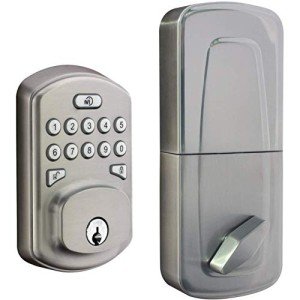The Most Advanced Guide To Shop Lighting UK
Shop Lighting UK: Illuminating the Retail Experience
In the ever-evolving world of retail, the importance of shop lighting can not be overemphasized. It not only enhances the visual appeal of products however likewise influences consumer habits, their state of mind, and the total shopping environment. With improvements in innovation and design, shop owners in the UK have a myriad of alternatives to select from when it comes to lighting solutions. This post will explore the kinds of lighting readily available, their benefits, and factors to consider for producing the ideal ambiance in a retail area.
Importance of Proper Shop Lighting
Effective shop lighting plays an important function in consumer experience and can substantially impact sales. Here are some essential reasons why adequate lighting is necessary for retail environments:
- Highlighting Products: Good lighting accentuates items, making them more appealing to customers.
- Producing Atmosphere: The ideal lighting can set the mood and evoke feelings, affecting getting decisions.
- Enhancing Safety: Well-lit stores are more secure, helping clients browse without threat of tripping or accidents.
- Improving Visual Merchandising: Proper lighting can improve screens, making them lively and appealing.
Types of Shop Lighting
Shop owners can select from various types of lighting, each serving various purposes, consisting of ambient, task, accent, and decorative lighting. Here's a breakdown of each type:
Type of Lighting
Description
Finest Uses
Ambient Lighting
Supplies overall lighting to the area.
General retail locations like stores and grocery stores.
Job Lighting
Concentrate on specific areas to improve visibility for tasks.
Checkout counters and dressing rooms.
Accent Lighting
Highlights particular items or display screens, creating a focal point.
Show cases, art, or marketing products.
Decorative Lighting
Adds aesthetic appeal and improves the general decoration.
Chandeliers and distinct fixtures in high-end stores.
1. Ambient Lighting
Ambient lighting is the foundational lighting within a shop. It fills the entire space, guaranteeing that consumers can see and navigate conveniently. Merchants must think about using LED panels or ceiling-mounted fixtures, as they provide energy performance and exceptional light circulation.
2. Job Lighting
Job lighting is important for locations where particular activities occur, such as checkout counters or workstations. Shop owners can set up under-cabinet lighting or track lights to focus lighting on these locations, enhancing the benefit and experience for both staff and customers.
3. Accent Lighting
Accent lighting helps draw attention to specific items or features within the store. This kind of lighting can be achieved through spotlights, track lights, or tactically put wall-mounted fixtures. It is particularly effective for showcasing featured products, promotional displays, or artwork, guiding customer focus where it's most needed.
4. Decorative Lighting
Beyond functionality, decorative lighting aspects include style and character to a retail space. Special fixtures, such as pendant lights or oversized chandeliers, can develop a remarkable atmosphere, particularly in boutiques or high-end retailers. These statement pieces not just light up but likewise improve the shop's branding and aesthetic appeal.
Selecting the Right Lighting for Your Shop
When choosing lighting for a retail environment, shop owners ought to consider the list below factors:
- Store Type: Different types of retail require differing lighting solutions. Buy Lighting Fixtures UK may need softer, more focused lights, while a grocery store might require brighter ambient lighting.
- Color Temperature: The color of light can impact the perception of items. Warm lights (under 3000K) create a cozy feel, while cool lights (above 3000K) can make a space feel more contemporary.
- Energy Efficiency: The usage of LED lighting not only saves energy but also decreases expenses over time.
- Versatility: Install dimmers or adjustable fixtures to adapt lighting for various occasions or seasonal modifications.
The Future of Shop Lighting
As technology progresses, shop lighting is ending up being significantly advanced. Here are some patterns shaping the future of retail lighting in the UK:
- Smart Lighting Solutions: Integrated technology enables remote control and automation of lighting systems via mobile phones or home assistants.
- Sustainable Lighting: There is a growing emphasis on environment-friendly solutions, with retailers choosing products that decrease ecological impact.
- Focal Point Lighting: Retailers are progressively utilizing lighting to create particular focal points that assist client traffic and boost item display screens.
FAQs about Shop Lighting in the UK
Q: What is the best kind of lighting for a clothing store?A: A combination of
ambient and accent lighting is generally best. Ambient lighting is required for overall visibility, while accent lighting can assist highlight essential pieces or collections. Q: How can I make my shop lighting more energy-efficient? A: Consider using LED lights, setting up movement sensors, or including
dimmers. This minimizes energy usage and costs in the long run. Q: Should I use natural light in my shop?A: Yes, using natural light can enhance customer experience whileminimizing energy expenses. However, it is necessary to balance natural light with synthetic lighting, especially on cloudy days. Q: How frequently ought to I change my shop's lighting fixtures?A: This depends on the kind of fixtures used. LED lights can last approximately 25,000 hours, while traditional bulbs****
might need to be changed more often. Regular upkeep checks are suggested. In an increasingly competitive retail environment, shop lighting plays an invaluable function in shaping client experiences and driving sales. Merchants in the UK have a wide variety of options and innovations at their disposal to create the ideal ambiance. By understanding the importance of the different types of lighting and how to execute them successfully, shop owners can boost their space, making shopping more enjoyable for customers while increasing their bottom line. 